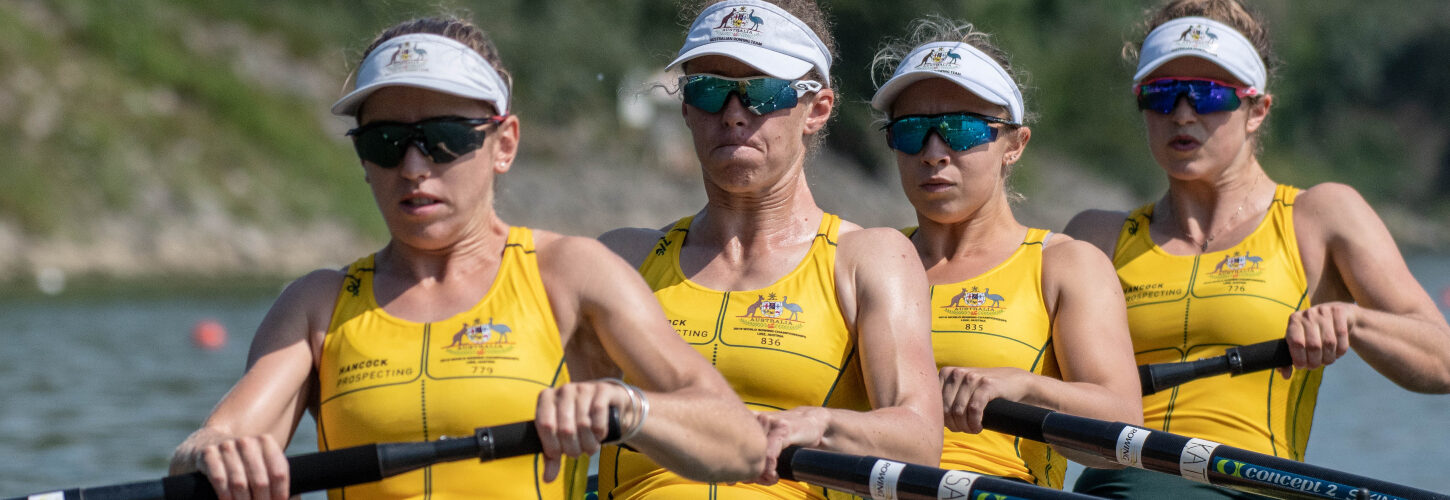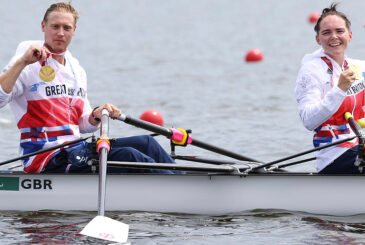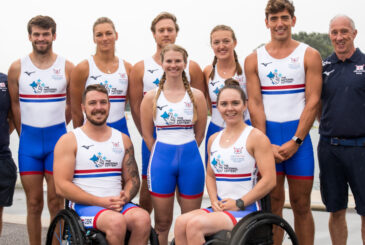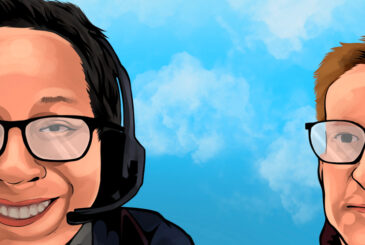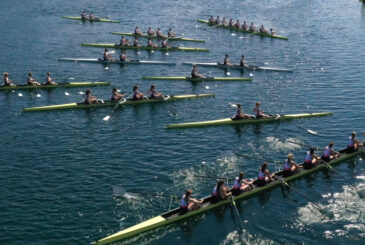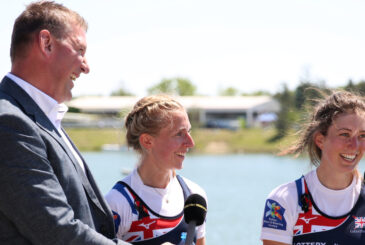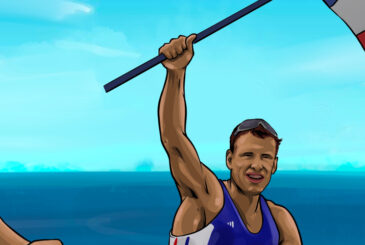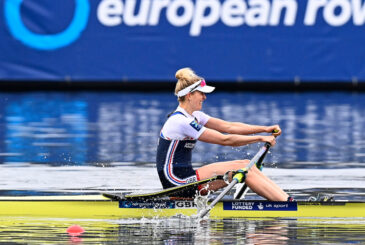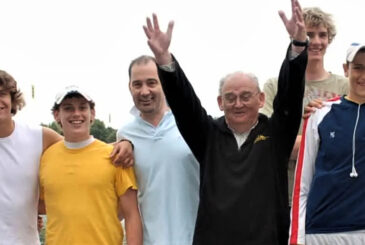Australia’s Lucy Stephan – 2019 world champion in the women’s four and pictured above at stroke – talks to Martin Cross about her career highs and lows
Lucy Stephan – ‘Luce’ – is a power-packed 28-year-old farm girl from Nhill, a town of about 2,000 souls in the middle of the Victorian countryside. She proudly represents Melbourne University BC, which she joined after first attending Ballarat Grammar.
Outgoing and fun, after spending a couple of hours talking with her about rowing, it’s easy to wonder just where the time went.
Luce fell in love with rowing when she jumped on the erg at the Australian Institute of Sport during an excursion on a year six school camp. Her name hasn’t featured at the top of the 2km-erg score list for the Australian women’s squad yet. She’s currently posting times in the mid 6:50s. Maybe that’s not surprising for a woman of ‘only’ 1.74m and 70 kilos, though Luce has never considered her comparative lack of size a disadvantage. That’s partly because she has retained the fierce work ethic that comes with life on the farm.
That work ethic, together with a great sense of how to move a shell – she once rowed a pair with the legendary Drew Ginn and another with Sarah Tait – has helped her to a hatful of international rowing honours.
She has been at the very heart of the renaissance of Australian women’s rowing and her senior medals include two women’s four golds at the World Championships of 2017 and 2019 – she had to settle for silver in 2018. Add to that the highest honours as an U23 oarswoman – once more in the four – and a precious Henley medal in 2018, at bow in the eight that won the Remenham Challenge Cup from their British rivals.
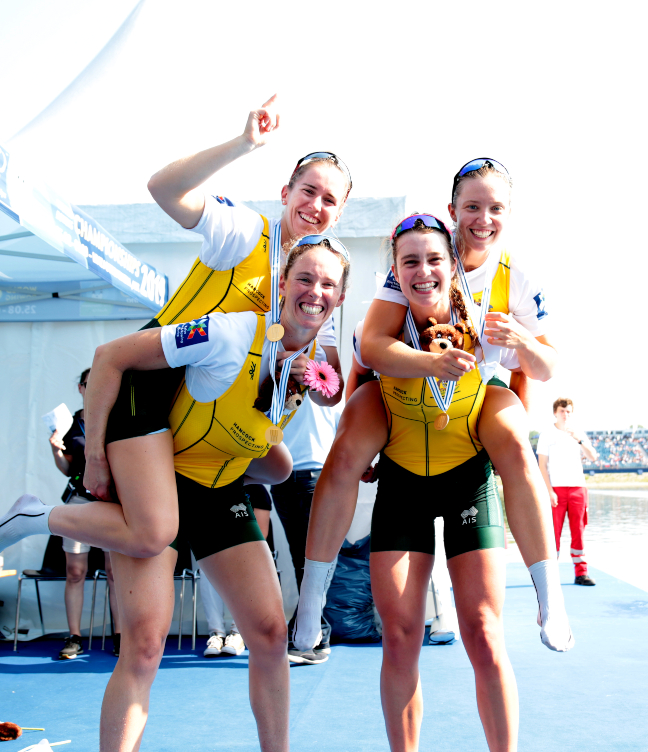
On top of that, there’s plenty else to mention.
Luce proudly became an Olympian as part of the Aussie eight, called in at the last minute to race in Rio when the Russian team was barred.
She also calls everybody by a nickname. And finally, if she had to choose a specialist subject for Mastermind, other than rowing, it would be her favourite film: Tina Fey’s Mean Girls.
So, how did you break into the senior national team?
Luce: A lot of the girls took a year out after the London Olympics, so there were some seats to be filled. But it was always about gradually taking stepping stones that made me realise how possible it was. In 2012 at Lithuania, where we won the U23 silver in the four, we had a real point to prove. The majority of us were little guys not the kind of big, tall talent ID athletes that the higher-ups were looking for at the time.
The next year, I got together with Char [Charlotte Sutherland] and it was just one of those pairs that clicked straight away. That year we took gold in the four at the U23s and a bronze in the World Championships and finished fifth in the doubling up in the women’s eights.
She once rowed a pair with the legendary Drew Ginn and another with Sarah Tait
Mental toughness is quite important for you?
I think it is incredibly important. I always remember the quote, I think it’s by Mark Twain: “It’s not the size of the dog in the fight, it’s the size of the fight in the dog”.
It’s something I learnt early on in my career, but I think rang most true in the pair with Char. We had a lot of ups and downs in that pair and learnt a lot about what it takes to create a strong partnership. Sometimes you have to have the tough conversations – the ones you really don’t want to have to find the spark you need.
2014 was a tough year for us. We didn’t have a great trials which resulted in us missing out on the eight and we’d been named the spare pair initially. We worked hard and earned ourselves a ticket to row the pair at the World Championships where we ended up securing a spot in the A final and finishing fifth.
It’s not the size of the dog in the fight, it’s the size of the fight in the dog
How did you get to row with Drew?
He was a part of the Rowing Australia coaching team back then and while we were on camp in Varese, he jumped in the bow seat.
I learnt about the flow round the back, just to sit there and let the boat run and really gather it forward. On our first 4km, I thought he must have been going really light to make the boat go straight. But when I looked round, he was really sweating. To be fair, it was Italy in the middle of summer, but that was one of the things Drew taught me.
Even though he was a lot stronger than me, he applied pressure in such a way that the boat ran somewhat straight and pretty quick too. It’s not always about the watts but how you apply them.
You didn’t qualify the eight for 2016. How did that whole Olympic experience impact you?
The Dutch and the Roms got us in the qualification regatta. We didn’t have that much experience of side-by-side racing in the eight.
I think I was in shock afterwards. It took me two weeks before I cried. I was home in Nhill out for a run. I was doing quite a bit of running having decided to complete a marathon as a distraction from missing out on the Olympics. I finally just cracked – broke down sobbing on the side of the road. I called my Dad to ask him to pick me up.
We knew there was a slim chance that the Russians might get suspended so we carried on training. When we found out we were going to Rio it was huge. Everyone was ecstatic.
We didn’t have a lot of time to adjust. But we gave it a crack in both the heat and the rep. It was a good way to go out, showing ‘mongrel and guts’. It was hard to be at the Games, given the circumstances, but I took the opportunity to learn what I could. I watched the racing and in the second week I learnt a lot just by talking to people. It definitely prepared me for the upcoming years.
I think I was in shock afterwards. It took me two weeks before I cried
How did the new centralized squad set up in 2017 work for you?
Originally, I didn’t want to move to the new National Training Centre in Penrith – I’m a Victorian! But I quickly learnt it’s where I needed to be. How can you beat eight pairs side-by-side battle paddling? It’s great to be there in the gym helping to motivate your teammates – it’s not just the coach’s responsibility to motivate the group.
So that four in 2017 really set things going?
We didn’t really have the numbers for the eight that year. But I remember that specific line-up in the seat racing rotations. We went down the track and I thought this is the boat. It was with ‘Mol’ [Molly Gooodman], ‘Kat’ [Katrina Werry} and ‘Sare’ [Sarah Hawe]. We just had fun and did some really good hearty rowing.
JK [John Keogh, Women’s Head Coach] had just come from Canada and he mentioned to me that he thought we had some pretty handy speed. I got over my ‘stroke complex’ when I quickly discovered it went faster with Mol in there. I was put in bow and called from there. We won in Poznan, Lucerne and took the gold in Sarasota.
I think it started something really special for sweep rowing in Australia. People wanted to be a part of it. They wanted to leave their mark too. This, of course, led to an eight which has gone on to win a bronze and silver at the last two World Championships
But you were back again with gold in 2019…
I had a long talk with Kimmy [Brennan] – she’s such a role model for me – about how she coped after winning silver in 2014 and what she did to get her head back in the game.
For, 2019, I was back in the stroke seat – they needed Mol to stroke the eight. And I had these three incredible, powerful girls behind me – Ol [Olympia Aldersey] had come in at bow.
It was hard to settle for bronze in Poznan. It meant trying to find ourselves again. We had some hard chats, but we worked it out. We were lucky to be coached by Westy [Tom Westgarth].
Linz was an amazing World Champs not just for us, but for the squad. To come away with a gold and two silvers [in the women’s sweep squad], it makes me incredibly proud to be a part of it.
How did you take to the Olympics being cancelled?
I really had to believe the Olympics were going to happen. So, it didn’t hit me till they closed the centre.
But they aren’t cancelled just postponed. I’m training hard with the same goal in mind.
Photos: Rowing Australia


